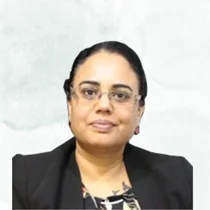Skilled Regional Permanent Visa (Subclass 191)
In September 2021, the Skilled Regional Visa (Subclass 191) had been announced by the Australian government and recently changed the income requirements previously endorsed with this visa. The Skilled Regional Visa (Subclass 191) is designed to provide a pathway to permanent residency for individuals who have held a relevant regional provisional visa (such as Subclass 491 or Subclass 494) and have met certain residency and employment requirements in a designated regional area of Australia.
Have Questions?
We're Just a Click Away!
Key Points About Subclass 191 Visa (Based on information available up to september 2021)

- Eligibility Criteria: To be eligible for the Subclass 191 visa, applicants generally need to have held a relevant regional provisional visa (such as Subclass 491 or Subclass 494) and have complied with the conditions of that visa, including meeting specific residency and employment requirements in a designated regional area.
- Residency and Work Requirements: Applicants are typically required to have lived and worked in a designated regional area of Australia for a specific period while holding the provisional visa. The specific requirements may vary based on the visa subclass.
- Permanent Residency: The Subclass 191 visa provides a direct pathway to permanent residency for individuals who meet the eligibility criteria. Once granted, it allows holders and their eligible family members to live, work, and study in Australia indefinitely.
- Health and Character Requirements: Applicants and their family members must meet certain health and character requirements as part of the visa application process.
- Timing: The Subclass 191 visa was expected to be introduced after a certain period following the introduction of the relevant regional provisional visas (Subclass 491 and Subclass 494). This timing may vary and should be verified with the Australian government.
- Income Requirements: Now there is no minimum income requirement for the Permanent Residence (Skilled Regional) visa (subclass 191). Primary applicants must provide notices of assessment issued by the Australian Taxation Office (ATO) for three income years out of the five years of their eligible visa.
Note : Please note that immigration policies and regulations can change, and the Subclass 191 visa might have undergone developments or changes since my last update. It’s important to consult our qualified immigration expert (Ms Urmila Sumeet Kumar) for the most up-to-date and accurate information about the Subclass 191 visa.
Dedicated Team
Great Support
Government Certified
Here to Assist You
Have questions? Get in touch with us for expert migration advice.

Expert Team Members
Our Dedicated Team At Your Service

Sumeet Vinod Kumar
Founder / Director

Urmila Sumeet Kumar
Co-Founder / Director

Manmohan Makkar
Immigration Lawyer / Director

Anisha Makkar
Operation Manager, India

Dhara Amit Shah
Business Development Manager

Vinaya Vineet Pasarnikar
Senior Case Manager

Gitanjali Bahuguna
Case Manager

Beena Bhola
Case Manager

Karunjit Thind
Case Manager

Rupali Kumari
Case Manager
Frequently Asked Questions
At Auzworld Migration, We’re a team of Registered Migration Agents & Immigration Lawyers.
Australia offers a variety of visas to cater to different needs. The primary categories include:
- Tourist visas: For short-term visits.
- Student visas: For international students.
- Work visas: For skilled workers and temporary workers.
- Family visas: For partners, parents, and children of Australian citizens or permanent residents.
- Migrant visas: For permanent residency.
The specific documents required vary depending on the visa type. However, common documents include:
- Valid passport
- Proof of financial support
- Health examinations
- Police certificates
- Proof of education or employment
- Relationship evidence (for partner visas)
Processing times can vary significantly depending on the visa type and individual circumstances. It’s essential to check the estimated processing times on the Department of Home Affairs website. Factors such as the time of year, lodgement location, and the complexity of the application can also influence processing times.
Yes, most student visa holders are allowed to work part-time during their studies and full-time during designated breaks. However, there are limitations on the number of hours you can work.
The requirements for permanent residency vary depending on the visa pathway chosen. Common pathways include skilled migration, family sponsorship, and employer sponsorship. Each pathway has its own eligibility criteria, including age, skills, work experience, and English language proficiency.





